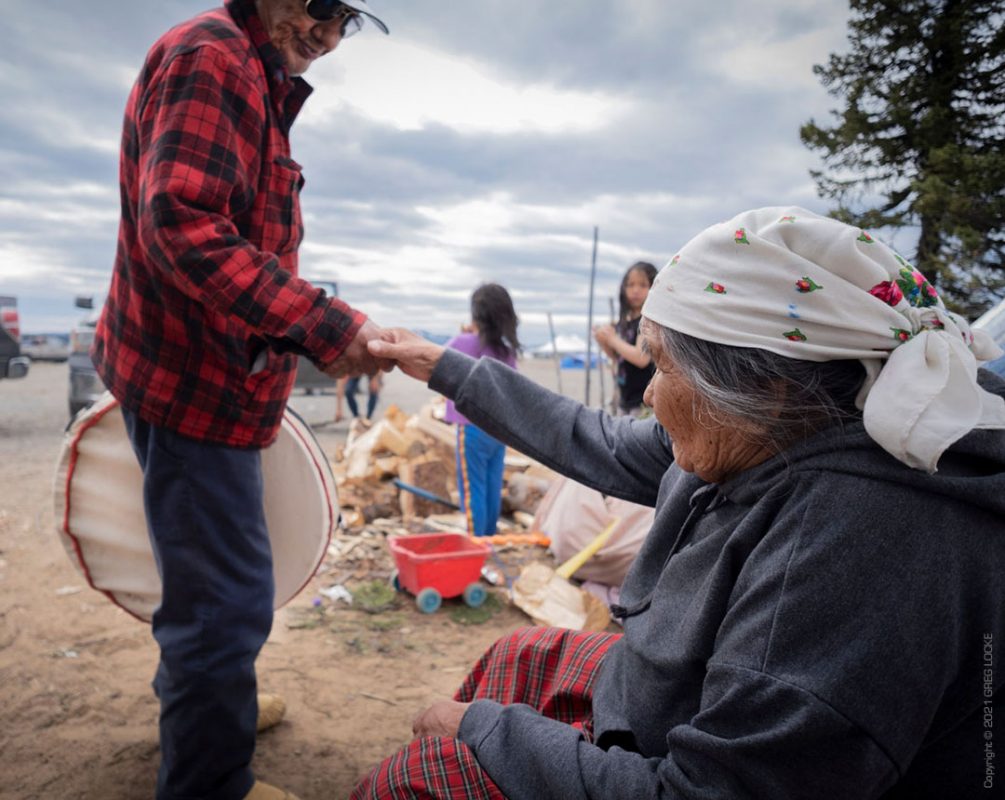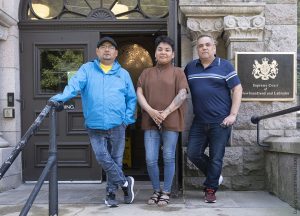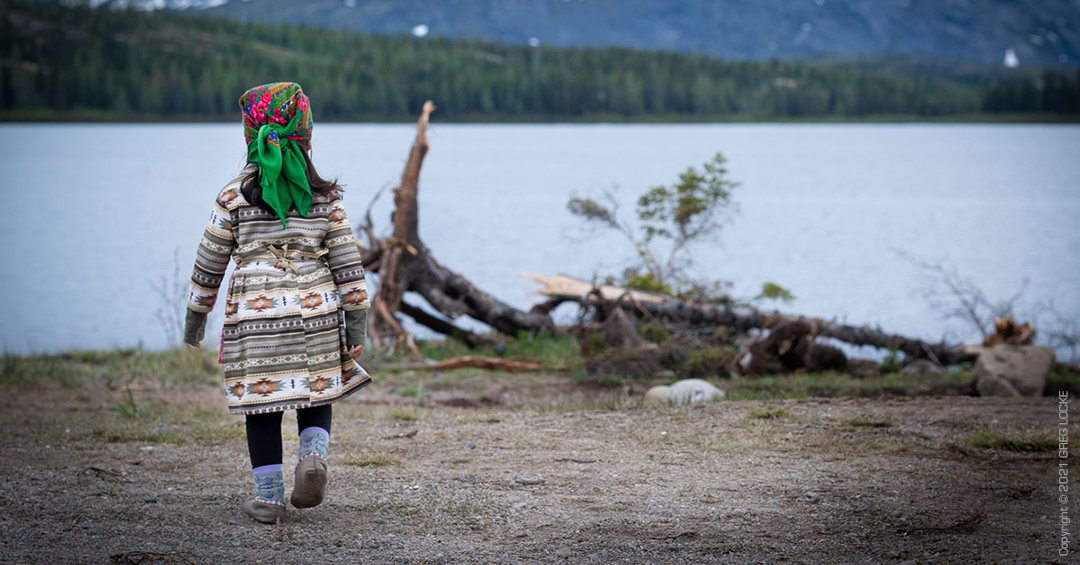NATUASHISH, LABRADOR August 12, 2021 – Days after a human rights report slammed Canada for its treatment of the Innu, the Innu Nation sued the federal and provincial governments over the Muskrat Falls energy project affecting their ancestral lands.
The suit, filed in Newfoundland Supreme Court, names the provincial and federal governments, and was triggered by a joint government deal in which the Innu lost previously-negotiated benefits from the Muskrat Falls hydro project near Happy Valley, Labrador. The Innu only found out about the changes via news media, after the deal was announced.
Earlier this week a scathing new Canadian Human Rights Commission report called on Ottawa to recognise the Innu right to self determination, self government and right to control lands and resources, citing 30 years of stalling on land claims negotiations.
The federal government should abandon its previous positions concerning the Innu, and settle land claims within three years, report co-author Celest McKay told a news conference in St John’s on Aug. 9. The negotiations have been stalled since 1996.

The Innu of Labrador were the last nomadic people of North America, and occupied their region for at least one thousand years. They were forced into settlements in eastern Labrador by federal and provincial government officials after logging and mining operations began, and their lands were flooded for the Churchill Falls hydro project.
With settlement came the added trauma of a school system and government social services that separated children from their families.
Recognition of Innu land claims in Labrador would bring the Innu in line with other indigenous peoples in Canada, and provide legal leverage in the nation’s long, contentious, relationship with the province of Newfoundland and Labrador.
Innu Nation Grand Chief Etienne Rich said the new human rights report gives him hope that the government, which has been particularly stubborn on issues of taxation and self-governance, will change.
Rich says negotiations have gone on too long and the Innu Nation wants to sign a fair treaty that will allow them to govern themselves, control their own land and deliver the same level of services to their people that other Canadians take for granted.
“Canada must live up to its commitment to implement the United Nations Declaration o The Right of Indigenous People,” said Rich following a news conference by the Canadian Human Rights Commission.
Canadian Human Rights Commissioner Marie Claude Landry told reporters the Innu Nation needs to be recognised the same way other First Nations across Canada have been recognized.
“The Innu people are still owed a dept for decades of denial of their human rights,” said Landry.
“The Innu of Labrador continue to face systemic discrimination and significant obstacles to the full enjoyment of their rights,” said the report. “Since 2002, there have been notable developments domestically and internationally towards the promotion and protection of Indigenous rights. Yet, there has been little change in the situation of the Innu. More must be done.”
Newfoundland and Labrador Liberal MP and cabinet minister Seamus O’Regan said he will meet with Innu Nation to discuss the report, but had no comment on the call to settle the negotiations.
Two days after the release of that report, the Innu Nation filed the suit in Newfoundland Supreme Court over the agreement between the governments, which addresses rate mitigation and saw the federal government restructure the debt of the Muskrat Fall project.

Innu National grand Chief Etienne Rich said the suit aims to protect Innu Nation “rights and the benefits promised to the Innu for consenting to the Muskrat Fall Project. The claim is based on the fact that Canada and the province took direct, deliberate and decisive action to extinguish the financial benefits that the Innu people were promised in return for their consent that Muskrat Falls could be built.”
“The Innu Nation understands and supports rate mitigation (rate control for residential electricity users) to help residents of Newfoundland and Labrador. However, there is no justification for making the Innu bear the burden of cost overruns that they had no control over, when the Innu have already paid through the damage to their lands and Aboriginal rights.”
Minister O’Regan again declined comment about the lawsuit or why his government did not include the Innu Nation.
Newfoundland and Labrador Indigenous Affairs Minister Lisa Dempster told CBC News the province is committed to reconciliation and highly values its relationship with the Innu and all Indigenous groups.
The Innu Nation represents approximately 1,000 Mushau Innu living in Natuashis on the north coast of Labrador and 2000 Sheshatshiu Innu in Sheshatshiu on Lake Melville in south east Labrador.
By Greg Locke
© 2021
Further reading:
Follow-up Report to the CHRC on the Human Rights of the Innu of Labrador:
https://www.chrc-ccdp.gc.ca/en/resources/follow-report-the-chrc-the-human-rights-the-innu-labrador
https://www.heritage.nf.ca/articles/aboriginal/innu-history.php


